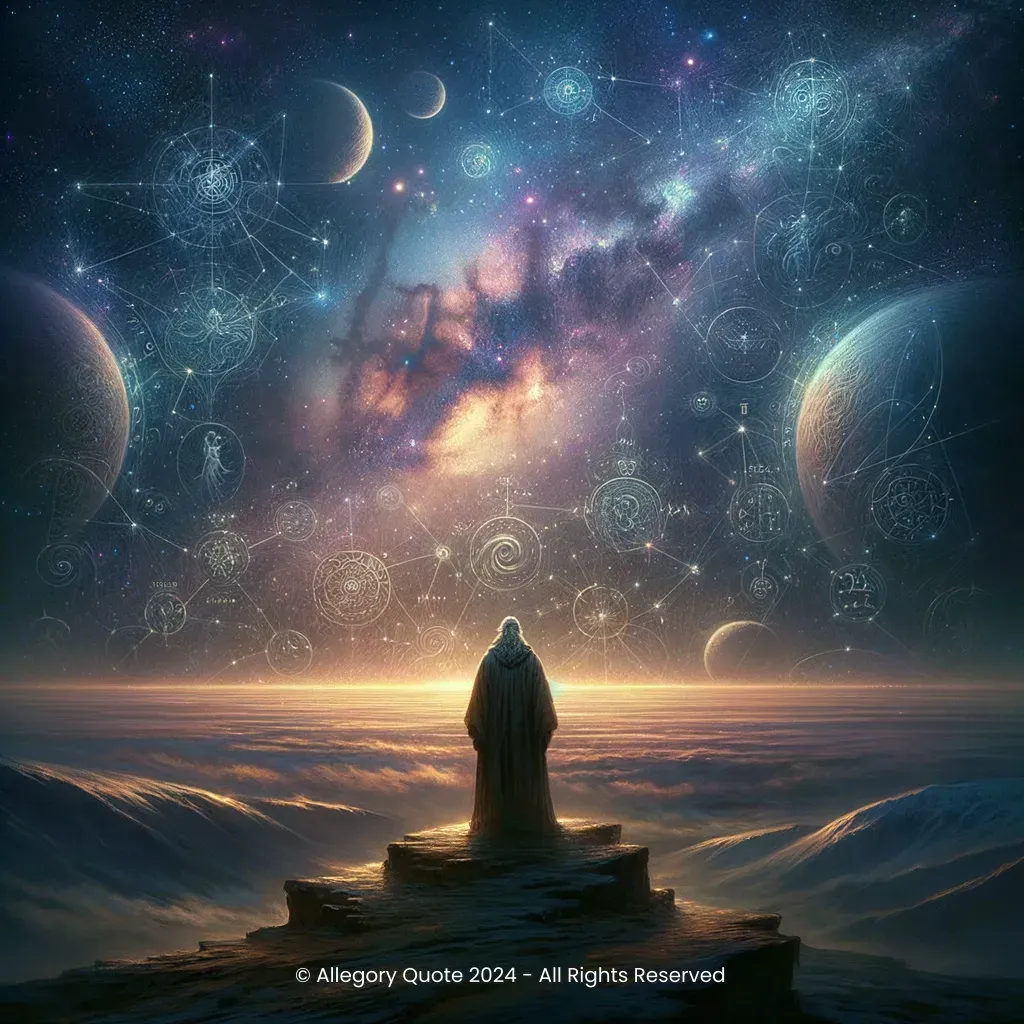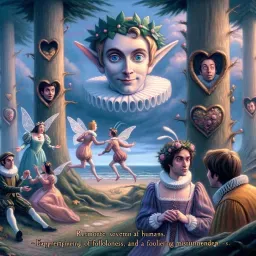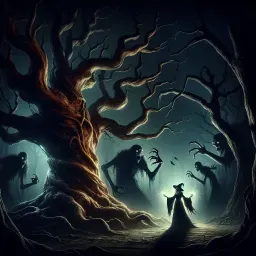”There are more things in heaven and earth,
Horatio, than are dreamt of in your philosophy“

0
0
0
0
- Meaning
- This quote is spoken by Hamlet to his friend Horatio. The phrase essentially means that the universe is full of phenomena, mysteries, and wonders that exceed human understanding and scientific knowledge ("your philosophy"). Shakespeare uses this line to suggest that there are many things that cannot be fully explained by human reasoning or the scientific knowledge of that time.
- Allegory
- The image includes a wise, contemplative Hamlet, representing human curiosity and the quest for knowledge, looking up to a mysterious, star-filled night sky where constellations form new patterns. The scrolls of ancient wisdom and mystical symbols that flow into the heavens symbolize the vast, unknown knowledge beyond human reach. The seamless merging of Earth and space suggests the unity and continuity of the known and unknown realms. Hamlet's awe-struck and humble expression captures the essence of the phrase, illustrating the humility and openness required to appreciate the vastness of the universe and the limits of human understanding.
- Applicability
- This phrase can be applied to personal life as a reminder to remain humble and open-minded. In our daily pursuits and beliefs, it encourages us to acknowledge that our knowledge is limited and that there are many unknown or unexplained aspects of life. It urges an openness to the marvels and mysteries of existence that lie beyond the scope of current understanding and conventional wisdom.
- Impact
- This phrase has had a lasting impact on culture and literature, often cited to illustrate the limits of human knowledge and to encourage intellectual humility. It has been referenced in various forms of media and discussions on the supernatural, philosophical debates, and scientific exploration. Its invocation typically serves as a reminder of the mysteries that still elude human comprehension.
- Historical Context
- Shakespeare wrote "Hamlet" around 1600. The context of this period includes the Renaissance, a time of great intellectual and artistic flourishing. It was an era marked by significant developments in philosophy, science, and exploration, leading people to question previously held beliefs and to consider new possibilities. This line reflects the Renaissance spirit of curiosity and awe at the complexity and vastness of the world, urging a broader perspective on knowledge and existence.
- Criticisms
- The primary criticism of this phrase revolves around the tension between skepticism and belief in the unknown. Some may argue that this viewpoint can be used to justify unscientific or baseless beliefs, potentially promoting superstition or pseudoscience. Others might see it as discouraging rigorous inquiry by suggesting that some mysteries should remain unexplored.
- Variations
- Various cultures have versions of this phrase, highlighting the universal theme of the unknown. For instance, in Zen Buddhism, the concept of "beginner's mind" emphasizes openness, eagerness, and lack of preconceptions just as a beginner would approach any subject. This reflects the idea that there is always more to learn and understand.
-

The empty vessel makes the loudest sound.
-

The evil that men do lives after them; the good is oft interred with their bones.
-

There was never yet philosopher that could endure the toothache patiently.
-

Lord, what fools these mortals be!
-

I like this place and could willingly waste my time in it.
-

O, had I but followed the arts!
-

By the pricking of my thumbs, something wicked this way comes.
-

A friend should bear his friend's infirmities, but Brutus makes mine greater than they are.
-

How far that little candle throws his beams! So shines a good deed in a naughty world.
-

They do not love that do not show their love.
No Comments